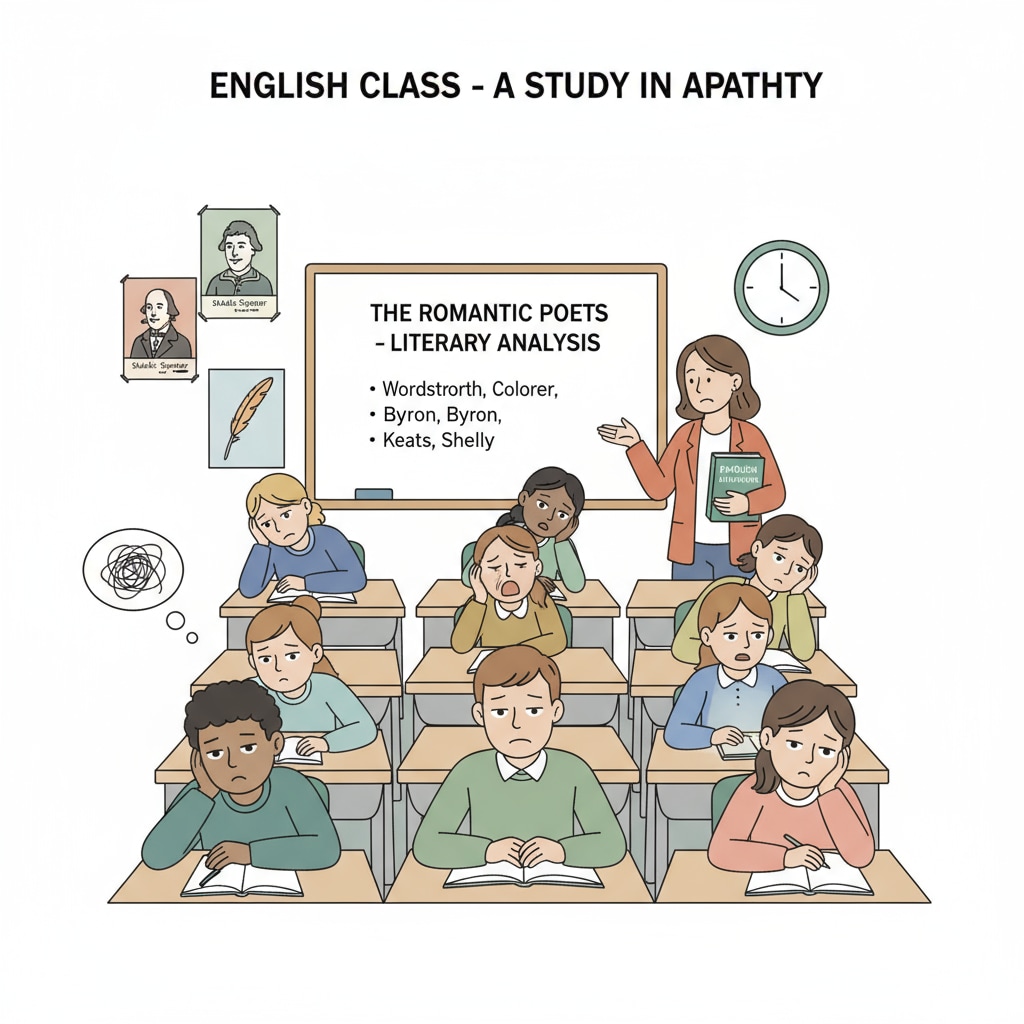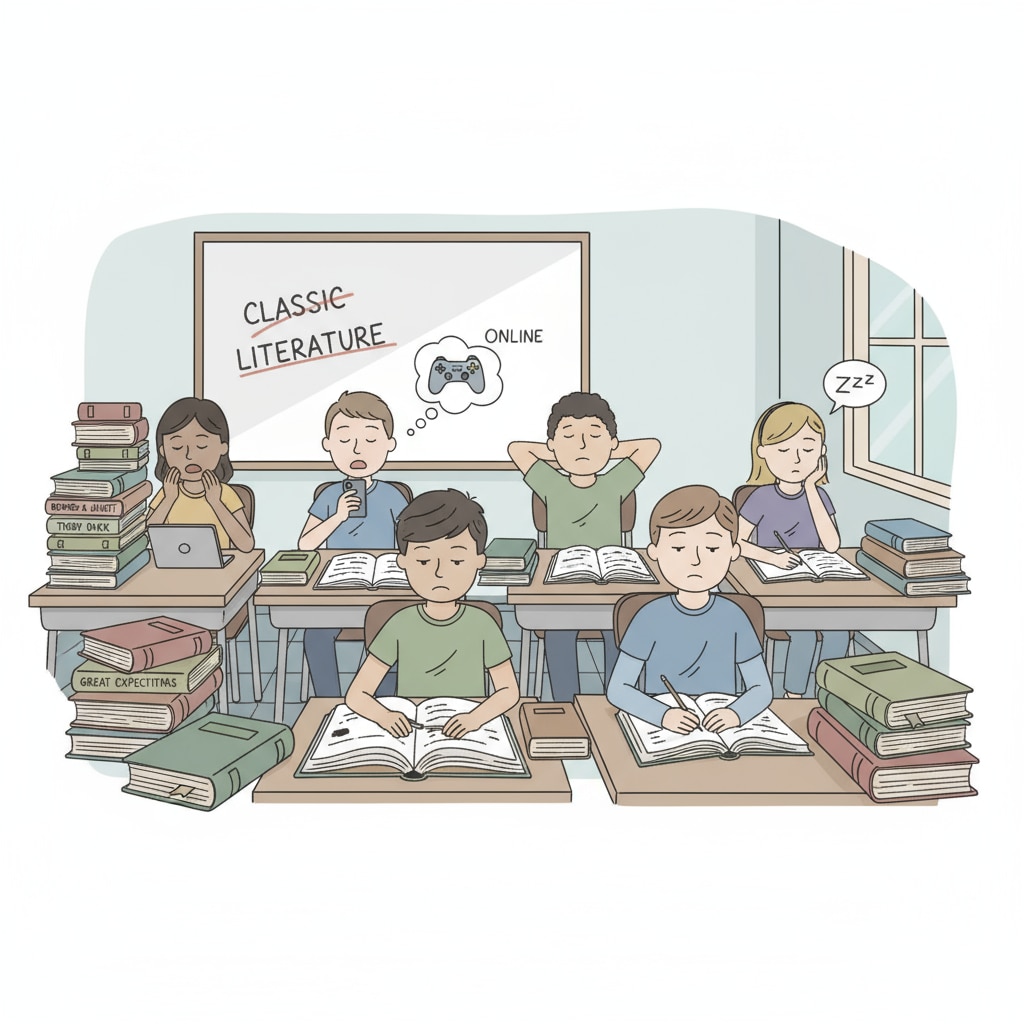English courses, literary works, and learning experiences are integral parts of a student’s academic journey. However, for many 9th graders, the English and British literature courses have turned out to be a disappointing experience. This shift from initial enthusiasm to disillusionment is a cause for concern and calls for a closer look at what went wrong.

The Problematic Course Design
The design of the 9th grade English and literature courses seems to have missed the mark. Firstly, the grading system is overly strict. Teachers often use a rigid set of criteria to evaluate students’ work, leaving little room for creativity and growth. For example, a minor grammatical error might lead to a significant deduction in points, discouraging students from taking risks in their writing. This can be a major blow to their confidence and enthusiasm for learning.
In addition, the writing tasks assigned are often mechanical in nature. Students are required to follow a specific formula, such as the five-paragraph essay structure, without much emphasis on expressing their own thoughts and ideas. This approach stifles creativity and makes the learning process feel like a chore rather than an opportunity for self-expression.
Another issue lies in the selection of textbooks. The literary works chosen might not resonate with the interests and experiences of 9th graders. They could be too complex or too far removed from the students’ modern lives, making it difficult for them to connect with the material and understand its significance. As a result, students may find themselves disengaged and uninterested in the courses.
The Impact on Learning Enthusiasm
The consequences of these flawed course designs are evident in students’ waning learning enthusiasm. When faced with harsh grading, uninteresting writing tasks, and unrelatable textbooks, students are less likely to be motivated to engage with the material. They may start to view English and literature as subjects to endure rather than enjoy.

This decline in enthusiasm can have a ripple effect on their overall academic performance. Without the drive to learn, students may not put in the necessary effort to improve their language skills and understanding of literature. This, in turn, can lead to lower grades and a less fulfilling educational experience.
Proposed Reforms for a Better Future
To address these issues and turn the situation around, several reforms are needed. Firstly, the grading system should be more flexible and balanced. Teachers should focus on students’ progress and improvement rather than just punishing mistakes. This could involve providing more constructive feedback and offering opportunities for students to revise and resubmit their work.
In terms of writing tasks, educators should encourage creativity and critical thinking. Instead of prescribing a rigid structure, students could be given more freedom to explore different styles and forms of writing. This would not only make the learning process more enjoyable but also help students develop their unique voices as writers.
Textbook selection is also crucial. Educators should choose literary works that are relevant, engaging, and accessible to 9th graders. These could include contemporary novels, short stories, or poems that reflect the students’ lives and interests. By making the material more relatable, students are more likely to be invested in their studies.
In conclusion, the 9th grade English and British literature courses have the potential to be enriching and inspiring. However, the current issues in course design are hindering students’ learning experiences. By implementing the proposed reforms, we can create a more positive and engaging learning environment, reigniting students’ passion for English and literature. This will not only benefit their academic growth but also their overall development as individuals with a love for language and literature.
Readability guidance: The use of short paragraphs and lists helps summarize key points. Each H2 section provides a list of issues and solutions. The proportion of passive voice and long sentences is controlled, and transition words are scattered throughout the text to enhance flow.


